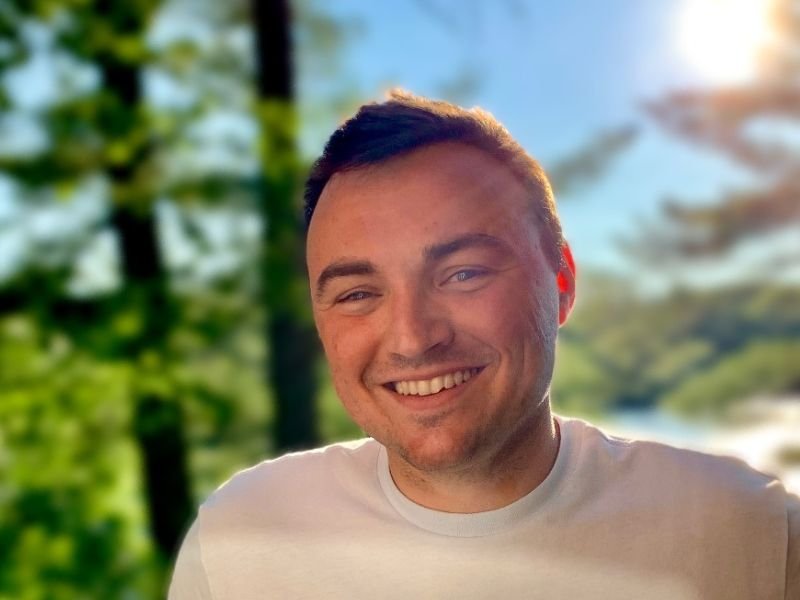Now What NH
Belonging by Design Series
Now What NH is a recently-founded organization which “serves to make New Hampshire more sustainable, more livable, and accessible to residents of all ages by encouraging residents with diverse viewpoints, backgrounds, and life experiences to take part in municipal zoning and land use boards.”
Their goals are to
Encourage diversity on land use boards.
Create a more diverse, welcoming state.
Create a welcoming community.
The premise is that many young people are leaving the state, because they are not finding the places to live in communities where they want to be – because of outdated ordinances. The founders believe that if Planning, Zoning and other land-use boards reflect the diversity of the communities they serve, perhaps some of this will start to change.
Nick Taylor, Now What NH's Leadership Team Member
Now What NH is a coalition … committed to helping New Hampshire’s communities remain strong and vibrant … [it] includes the Center for Ethics in Society at Saint Anslem College, New Hampshire Housing, New Hampshire Office of Planning and Development, 603 Forward, the New Hampshire Municipal Association, New Hampshire Planners Association, and more.
We sat down recently with Nick Taylor, a member of the Now What NH’s Leadership Team and Executive Director of the Workforce Housing Coalition of the Greater Seacoast.
Robin: So young people are leaving the state, and those who want to be here cannot find places to live. That, coupled with the jobs situation may keep people away – yet we also have what many are looking for¨ great outdoor recreation, cultural activities, craft beers and good music … what was it that tipped you all to saying: Now What NH?
Nick: The need to attract and retain young people and people with diverse backgrounds is one of the major challenges facing our state. How can those of us already here make them feel welcome and how can we encourage them to become engaged in their communities?
When we looked at the top challenges to keeping young people in he state – housing, social opportunities, recreation - land use boards are at the center of so many of those decisions. What gets built in a community? What doesn’t? These boards are the ones addressing that sense of community. Addressing the problems like creating places to live, or allowing certain kinds of businesses. But, there are limited resources aimed at getting people more involved with their local land use boards.
In many communities, the boards are pretty homogenous. Communities also struggle to get volunteers to fill the openings on local boards, and often the same people have been serving for years. This leads to boards often not reflecting the diversity of the town’s population – diversity of background, of age, of professions – even non-land-owners. The decisions our communities make are stronger when a variety of perspectives are at the table.
Robin: So what did you find are the biggest roadblocks, or barriers, for new people to become involved?
Nick: It’s intimidating. It’s tough to put yourself out there. If you have ever had to go before a local Board for something, you’ve likely experienced this.
Many people feel that they simply are not qualified. They worry that they don’t know enough about zoning or planning regulations or local government to be effective. The truth is that if you care about making your community a better place and are willing to learn, then you’ll make a great board member. There are great resources available and people who want to help.
In addition, many just don’t know how they might become involved, even if they wanted to. Are there openings? Is it appointed or elected? Who could I talk to if I want to learn more? And then, of course, there are structural barriers like time commitment, meeting schedules, and more like that.
Robin: And now New Hampshire has Now What NH!
Nick: Yes. We see our role as lowering those barriers to serving. We want to help make it less scary for those who want to become involved or learn more – even if they are not sure exactly where or how.
We’ll talk about the importance of getting involved locally. We’ll meet with people who are thinking about volunteering, answer questions, connect them with existing board members, and show them how to apply in their own town. We can also provide mentoring and other support for those who become part of a board.
Robin: How is this important to New Hampshire’s future?
Nick: It’s really important for all of us to be engaged in public service. There are real challenges our towns and cities are facing. All community decisions will be more effective and equitable if the full community is represented. Lived perspectives, like trying to find a decent place to live at a price point you can afford, are invaluable.
When the whole community is represented as part of the decision-making process, it means better economic outcomes, and better social outcomes, which in turn mean stronger towns and cities and a stronger state.
We want a New Hampshire that works and represents everyone who lives here.
Robin: So what’s next for Now What NH?
Nick: We’re hitting the road! We launched just a few months ago and we’ve already had numerous meetings with individuals and groups looking to learn more. If you are interested in serving on a land use board, reach out to us at www.nowwhatnh.com!


